Visual recognition Normal Social Studies Worksheets for Ages 3-6
5 filtered results
-
From - To
Welcome to our Visual Recognition Normal Social Studies Worksheets, specifically designed for children aged 3-6! These engaging worksheets help young learners develop their visual recognition skills through exciting activities that promote observation and awareness of their environment. With vibrant illustrations and age-appropriate content, kids will enjoy identifying community helpers, seasonal changes, and cultural symbols. Our worksheets encourage critical thinking and discussion about the world around them, fostering a strong foundation in social studies from an early age. Perfect for home or classroom use, these resources make learning fun and interactive, ensuring children build essential skills while exploring their social environments.
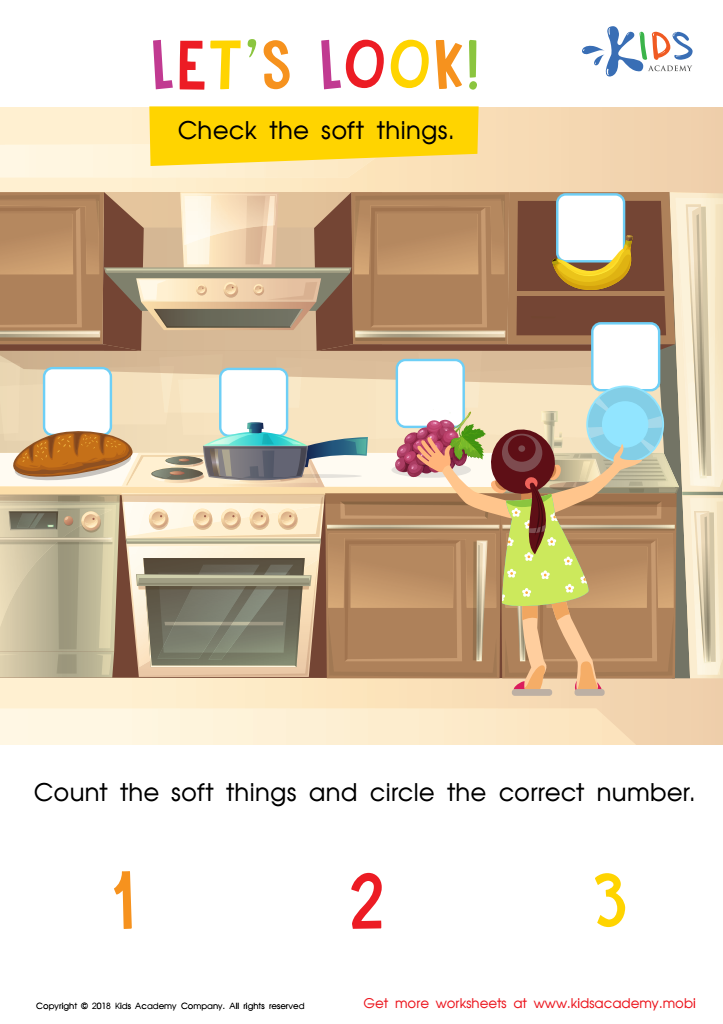

Let's Look! Assessment Worksheet
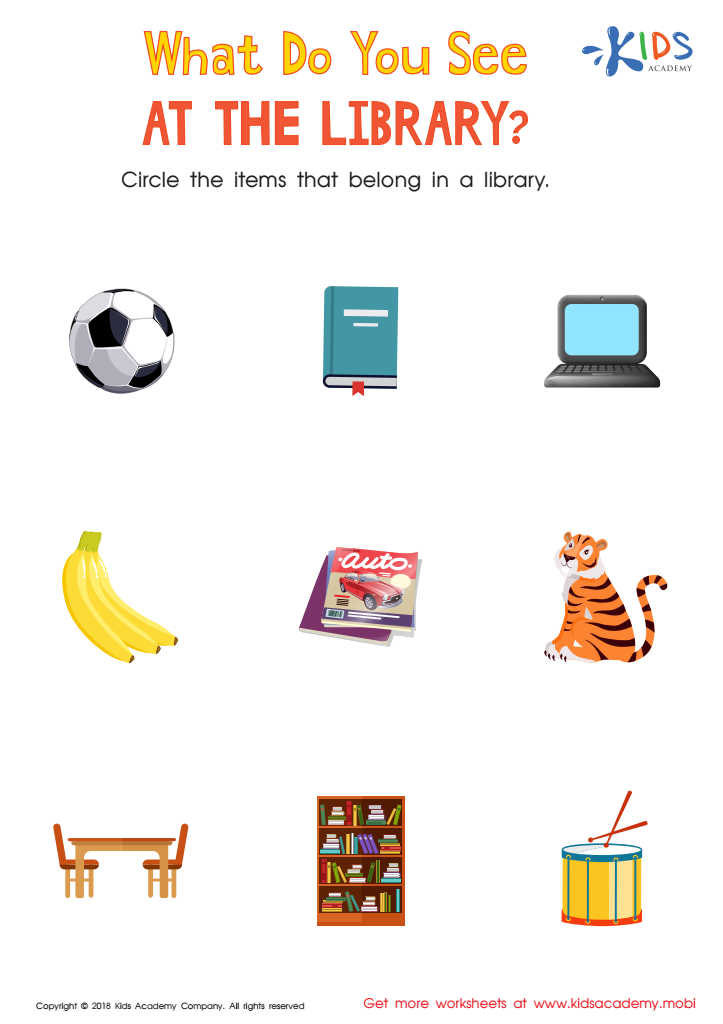

What Do you See at the Library? Worksheet
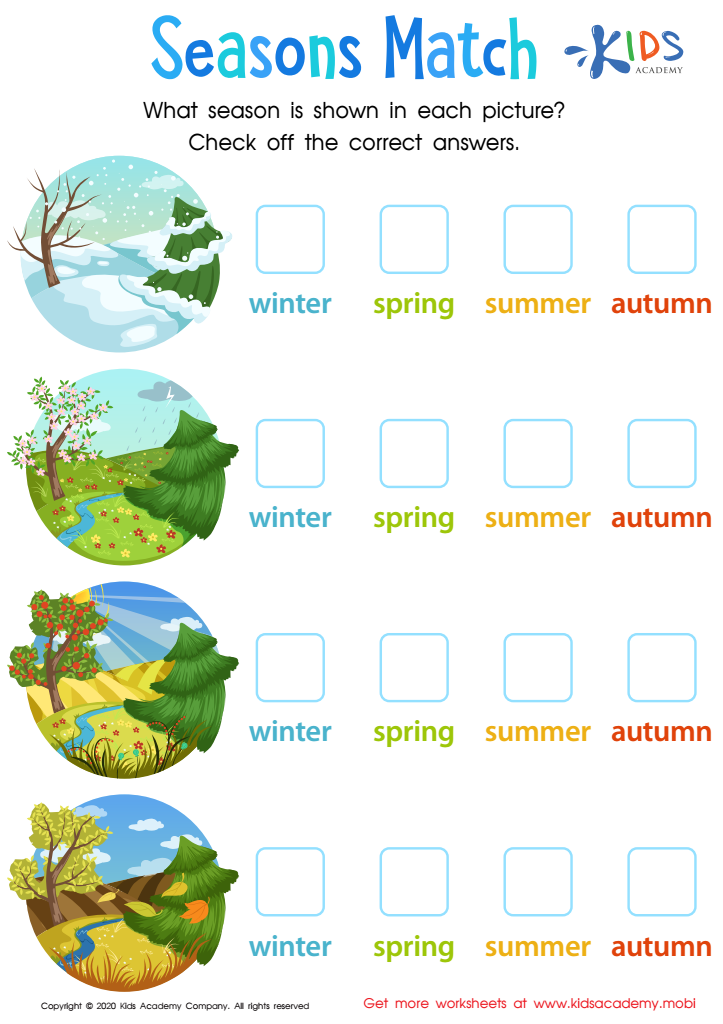

Seasons Match Worksheet
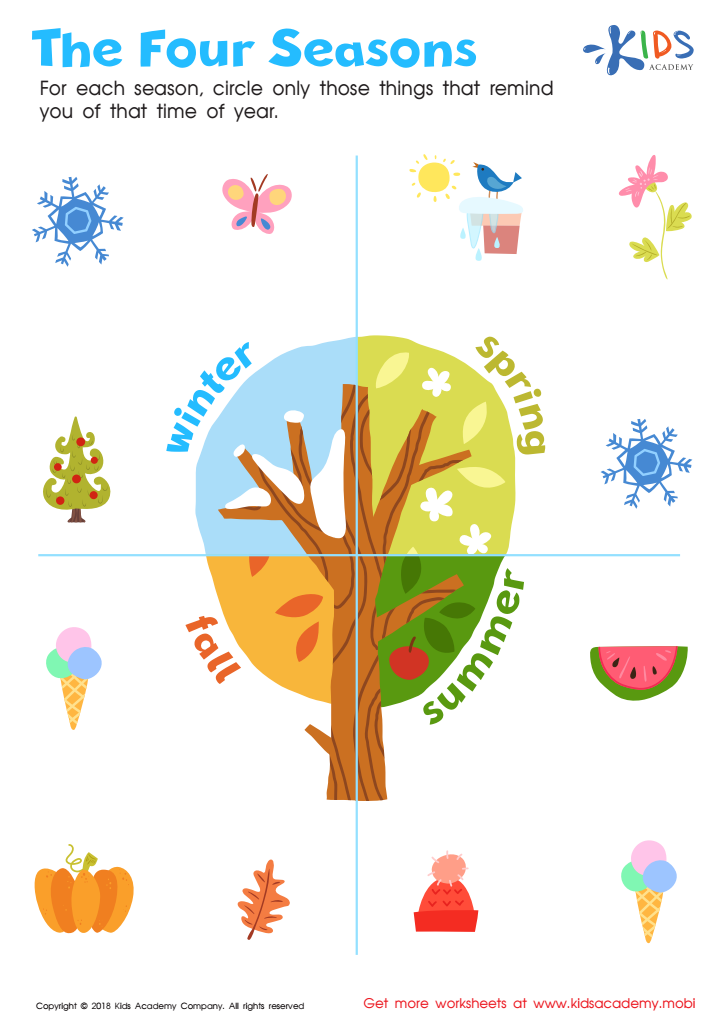

The Four Seasons Worksheet
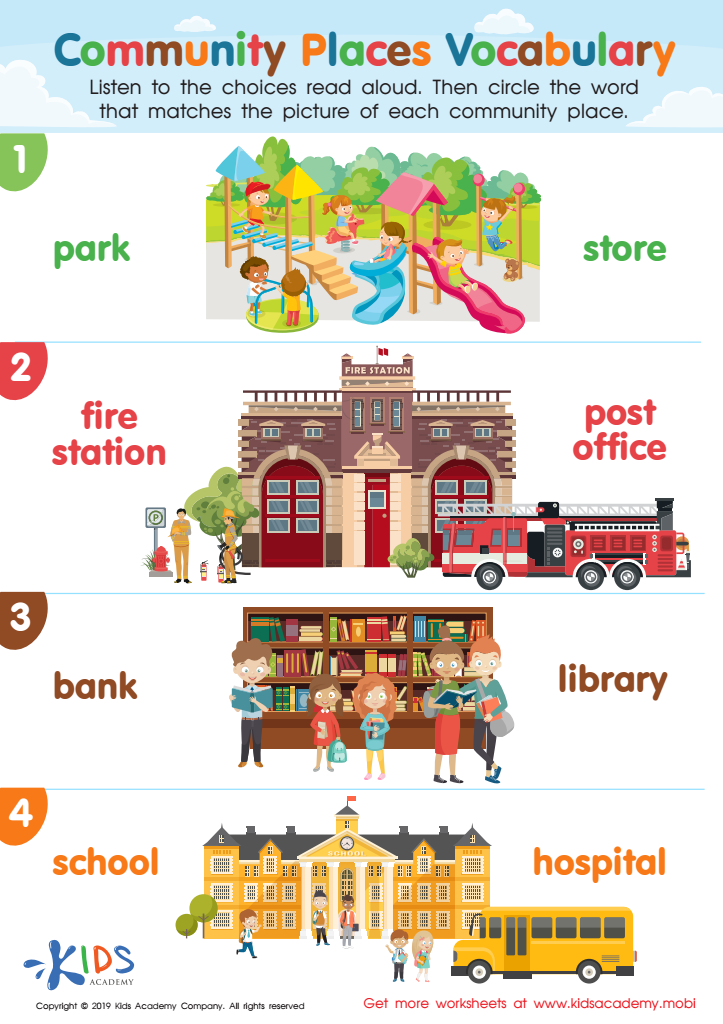

Community Places Vocabulary Worksheet
Visual recognition is a crucial cognitive skill that plays a fundamental role in the development of children aged 3 to 6 years old, particularly in the context of Social Studies education. This skill enables children to identify and make sense of their environment, consequently aiding their ability to engage with the world around them. For parents and teachers, fostering visual recognition directly impacts children's understanding of social concepts, such as community, culture, and relationships.
As children recognize images, symbols, and representations, they develop critical thinking and comprehension skills essential for interpreting social contexts. For instance, recognizing a firetruck or a home helps them form connections to safety, community services, and family structures. Engaging children in activities that enhance visual recognition, such as picture books, maps, and role-playing, helps nurture their curiosity and analytical abilities.
Moreover, strong visual recognition skills are foundational for children’s literacy development, improving their capacity to decode text and understand illustrations. By prioritizing activities that promote these skills in the early years, parents and teachers can enhance children’s ability to form meaningful relationships and participate actively in their communities, setting the stage for lifelong learning and social engagement.

 Assign to My Students
Assign to My Students
















